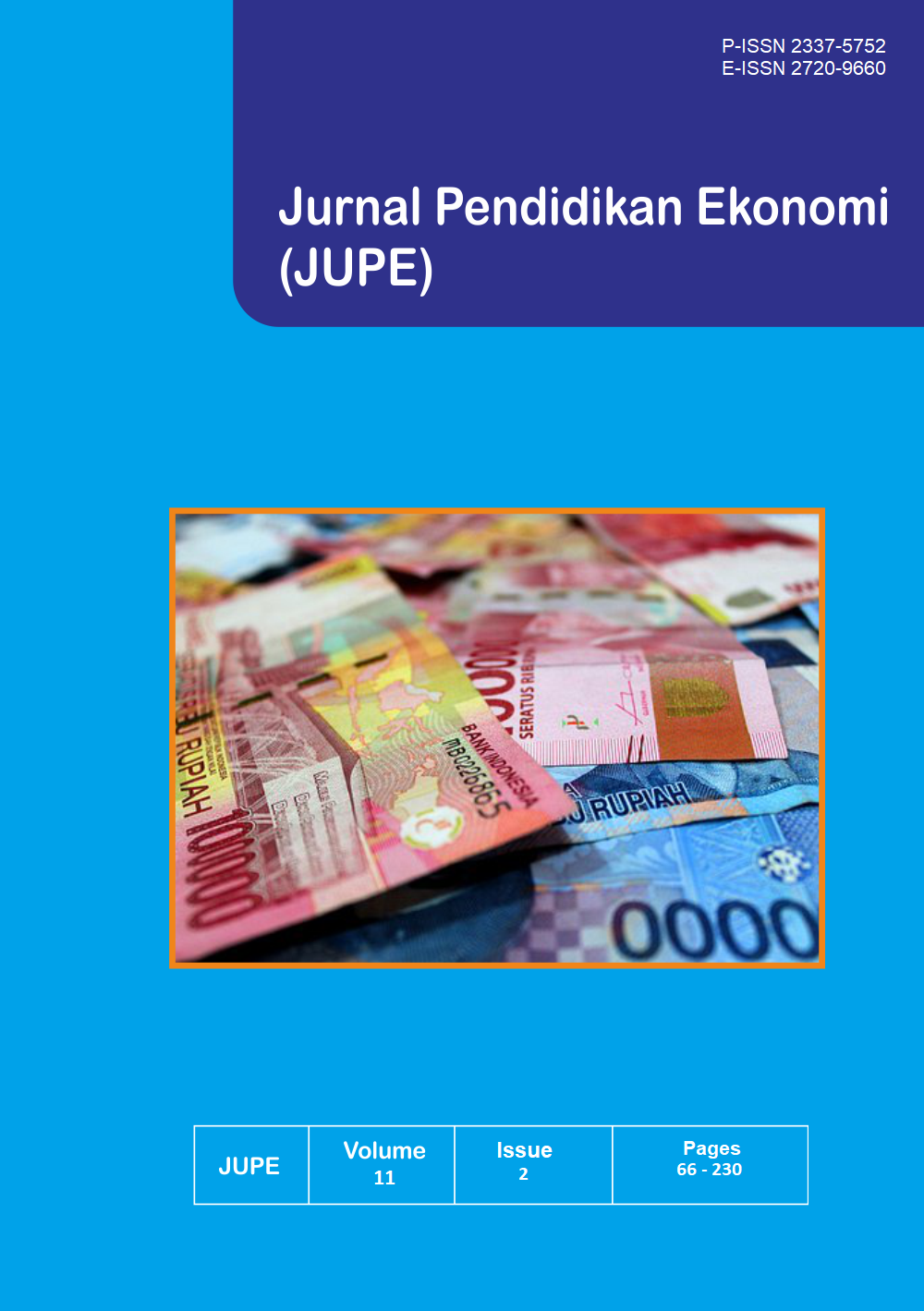Student-Centered Learning: Social Capital dan Knowledge Sharing Pada Mata Kuliah Akuntansi Keuangan Lanjutan
DOI:
https://doi.org/10.26740/jupe.v11n2.p157-171Keywords:
: Student-centered Learning, Social Capital Theory, Knowledge SharingAbstract
Student-centered learning menjadi salah satu pendekatan pembelajaran yang digunakan oleh pengajar untuk meningkatkan keterlibatan dan kemampuan berpikir kritis mahasiswa. Dengan pendekatan kuantitatif-eksplanatif, penelitian ini memiliki tujuan untuk menganalisis bagaimana partisipasi mahasiswa selama mata kuliah Akuntansi Keuangan Lanjutan ditinjau dari perspektif teori modal sosial dan knowledge sharing. Pengambilan sampel dengan teknik purposive sampling, ditentukan sebanyak 370 mahasiswa akuntansi di Perguruan Tinggi Negeri Kota Malang menjadi responden dalam penelitian ini. Analisis data yang digunakan yaitu analisis regresi linear berganda. Hasil penelitian menunjukkan bahwa interaksi sosial, kepercayaan sosial, reciprocity, dan norma sosial memiliki pengaruh positif terhadap knowledge sharing.
Downloads
Downloads
Published
How to Cite
Issue
Section
License
Copyright
- Authors retain copyright and grant the journal right of first publication with the work simultaneously licensed under a Creative Commons Attribution License that allows others to share the work with an acknowledgment of the work's authorship and initial publication in this journal.
 Abstract views: 277
,
Abstract views: 277
, PDF Downloads: 289
PDF Downloads: 289











